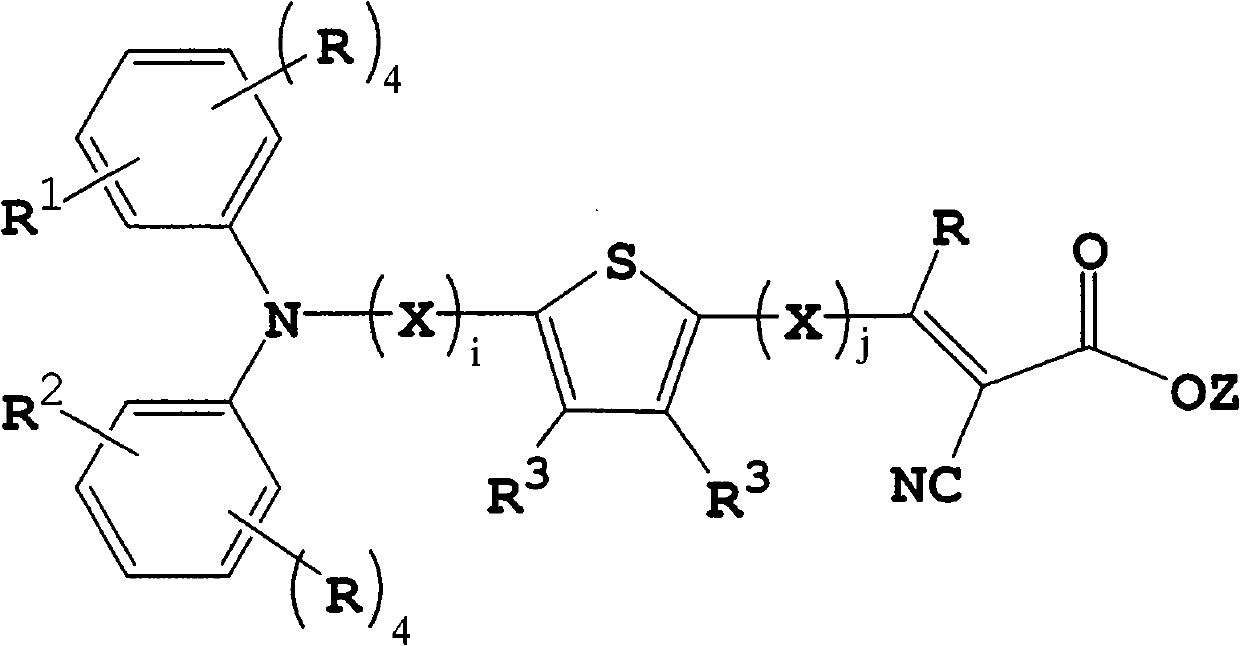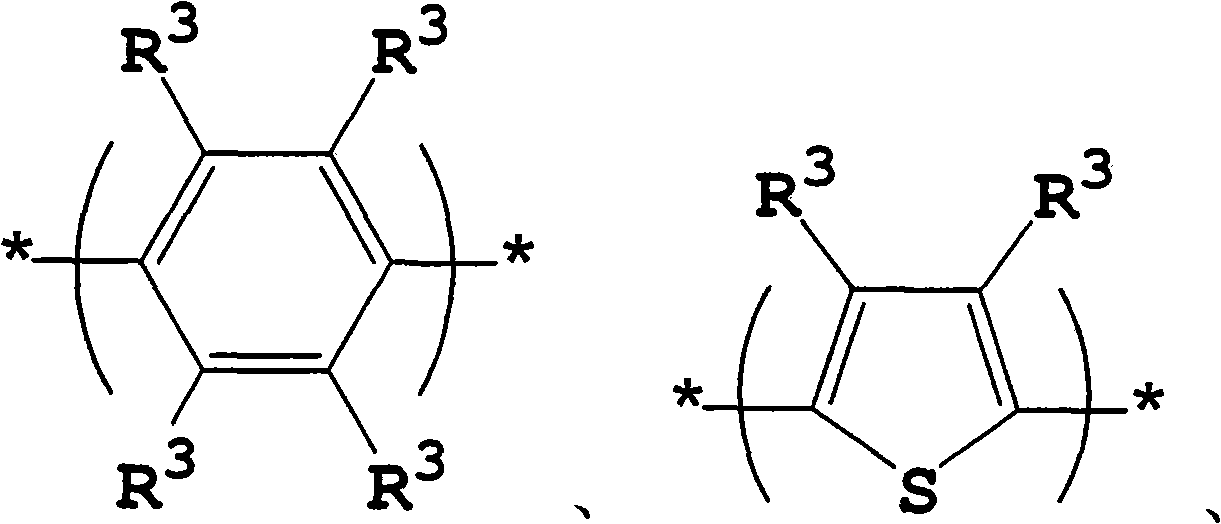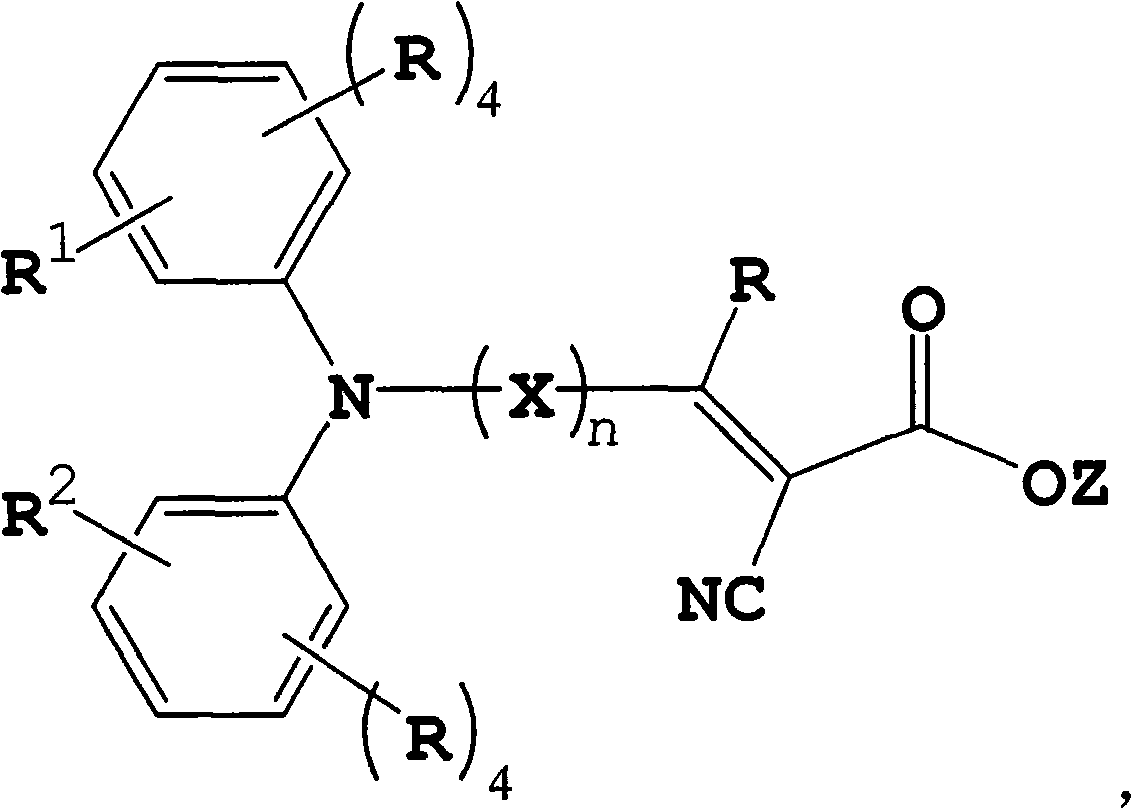Organic dye and photoelectric conversion device with same
A photoelectric conversion device and organic dye technology, applied in organic dyes, photovoltaic power generation, azo dyes, etc., can solve the problems of organic dyes without dye-sensitized solar cells, low stability, durability, conversion efficiency, etc., to reduce LUMO The energy level, the energy gap of the dye is narrowed, and the effect of reducing energy loss
Active Publication Date: 2010-12-29
IND TECH RES INST
View PDF7 Cites 10 Cited by
- Summary
- Abstract
- Description
- Claims
- Application Information
AI Technical Summary
Problems solved by technology
However, due to low stability, durability, and conversion efficiency, there are currently no organic dyes available for practical application in dye-sensitized solar cells (DSSCs).
Method used
the structure of the environmentally friendly knitted fabric provided by the present invention; figure 2 Flow chart of the yarn wrapping machine for environmentally friendly knitted fabrics and storage devices; image 3 Is the parameter map of the yarn covering machine
View moreImage
Smart Image Click on the blue labels to locate them in the text.
Smart ImageViewing Examples
Examples
Experimental program
Comparison scheme
Effect test
preparation example Construction
Embodiment 1
Embodiment 5
the structure of the environmentally friendly knitted fabric provided by the present invention; figure 2 Flow chart of the yarn wrapping machine for environmentally friendly knitted fabrics and storage devices; image 3 Is the parameter map of the yarn covering machine
Login to View More PUM
 Login to View More
Login to View More Abstract
The invention provides an organic dye and a photoelectric conversion device with the same. The organic dye has a structure shown in the specification, wherein n is an integer from 3 to 11; a plurality of Xes are independent respectively and are selected from groups consisting of the following components and combinations thereof; R is respectively independent H, halogen atoms, C1 to C18 alkyl, C1 to C18 alkoxy, C3 to C18 heterocyclic alkyl, C3 to C20 aryl, C3 to C20 heterocyclic aryl, C3 to C20 alcyl or C3 to C20 cycloalkyl; R1 and R2 are respectively independent the H, the halogen atoms, the C1 to C18 alkyl, the C1 to C18 alkoxy, the C3 to C18 heterocyclic alkyl, the C3 to C20 aryl, the C3 to C20 heterocyclic aryl, the C3 to C20 alcyl or the C3 to C20 cycloalkyl, or the R1 is connected with the R2 to form a loop with 5 to 14 elements; R3 is respectively independent the H, the halogen atoms, nitryl, amido, the C1 to C18 alkyl, the C1 to C18 alkoxy, C1 to C18 alkyl sulfide, the C3 to C18 heterocyclic alkyl, the C3 to C20 aryl, the C3 to C20 heterocyclic alkyl, the C3 to C20 alcyl or the C3 to C20 cycloalkyl; and Z is hydrogen, alkali metal or quaternary ammonium salt.
Description
technical field The invention relates to an organic dye, in particular to an organic dye used in a photoelectric conversion device. Background technique In response to the need for energy conservation, various alternative renewable energy sources have been explored. In recent years, Gratzel and O'Regan proposed a dye-sensitized solar cell (dye-sensitized solar cell, DSSC), which can more effectively utilize solar energy, which has attracted a lot of attention in the industry. In general, the structure of a dye-sensitized solar cell includes four parts, which are the cathode / anode electrode that provides the current flow path, the semiconductor titanium dioxide (TiO 2 ), a dye layer, and an electrolyte for transporting holes. The material of each part of the above-mentioned dye-sensitized solar cell and the interface structure between each part will affect the efficiency of the module, and the dye in the dye layer is the most important factor affecting the efficiency of the...
Claims
the structure of the environmentally friendly knitted fabric provided by the present invention; figure 2 Flow chart of the yarn wrapping machine for environmentally friendly knitted fabrics and storage devices; image 3 Is the parameter map of the yarn covering machine
Login to View More Application Information
Patent Timeline
 Login to View More
Login to View More Patent Type & Authority Applications(China)
IPC IPC(8): C09B57/00H01L51/42H01L51/46H01L51/50H01L51/54H01G9/20
CPCY02E10/542Y02E10/549
Inventor 童永梁吴佳音陈壬安徐心怡吴春桂钟旻峰蔡松雨
Owner IND TECH RES INST
Features
- R&D
- Intellectual Property
- Life Sciences
- Materials
- Tech Scout
Why Patsnap Eureka
- Unparalleled Data Quality
- Higher Quality Content
- 60% Fewer Hallucinations
Social media
Patsnap Eureka Blog
Learn More Browse by: Latest US Patents, China's latest patents, Technical Efficacy Thesaurus, Application Domain, Technology Topic, Popular Technical Reports.
© 2025 PatSnap. All rights reserved.Legal|Privacy policy|Modern Slavery Act Transparency Statement|Sitemap|About US| Contact US: help@patsnap.com



